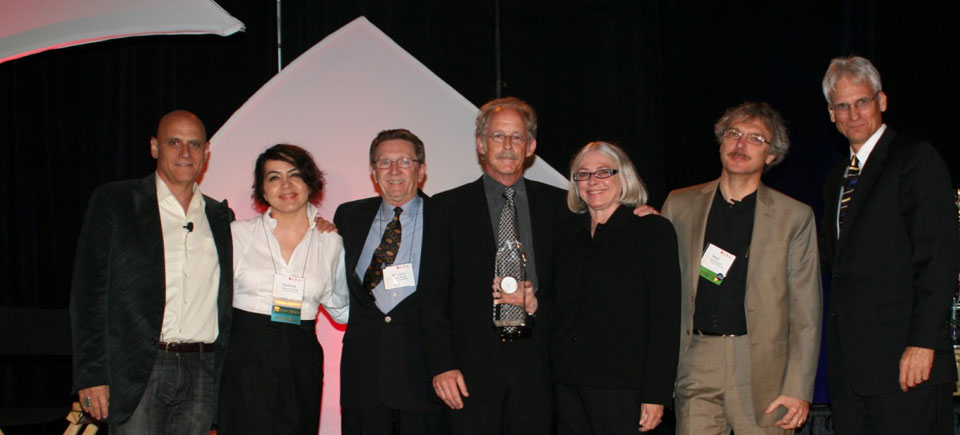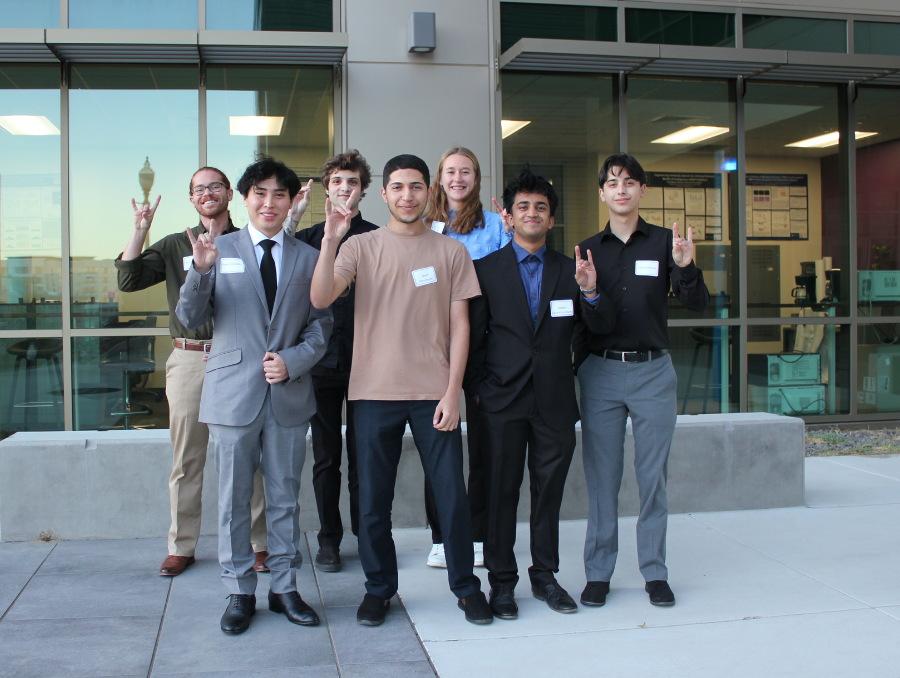Let's be honest: You've never heard of behavior analysis, have you? If you have, well done. If you haven't, well here's your fact of the day: the University of Nevada, Reno has one of the best behavior analysis programs around.
In fact, the University's behavior analysis program recently received an international award recognizing it as one of the top programs in the world. In January, the Society for the Advancement of Behavior Analysis awarded it with the "Enduring Programmatic Contribution Award."
The award recognizes the quality and longevity of the program's contributions to the field of behavior analysis. According to Larry Williams, director of the behavior analysis program, if you're a behavior analyst, it's like being inducted into the Rock and Roll Hall of Fame.
"I have been here for 17 years and I am so proud to be part of a world recognized program in behavior analysis," Williams said. "As my career winds down, I feel complete when I travel to different places in the USA and to different countries and I am recognized as the director of the behavior analysis program at UNR. It doesn't get much better."
Behavior analysis is a branch of psychology that focuses on analyzing and changing behavior. It accomplishes this by analyzing external behaviors, such as what a person says or does, rather than hypothesizing about what is happening inside their mind.
Behavior analysis has developed broad applications, though its best known accomplishment is in its success with treating children diagnosed with autism.
According to Williams, many children diagnosed with autism who receive intensive behavior analysis therapy make a remarkable recovery. Research indicates that approximately 80 percent see general improvement and approximately 47 percent recover to the point that they are indistinguishable from their peers.
"We still don't know what causes autism," Williams said. "[But while research in many areas is being conducted, behavior analysis is] essentially the only treatment approach to date that indicates what we should actually do with the person diagnosed with autism."
Behavior analysis has far broader applications than just autism therapy. The applications include workplace safety, addiction treatment and even "green" technology. For example, University faculty Mark Alavosius studies the psychology behind why people adopt emerging, environmentally-friendly technologies.
In this innovative field of behavior analysis, the University's program is widely respected as one of the best in the world. Masters student Sara Stratz, who moved from Michigan for the highly reputed program, has experienced first-hand the high regard people have for the program.
While attending a conference for the Association for Behavior Analysis International, with which the University is one of only seven fully-accredited organizations worldwide, Stratz ran into a former colleague. When he learned that Stratz studied at the University, Stratz recalls that he had one thing to say:
"Do you know how many people in this room are jealous of you now?"
Moreover, Stratz's experience isn't unique. Ben Witts, a doctoral student from Minnesota, received similar endorsements for the University's program. While interning at the renowned Mayo Clinic, a behavior analyst had a few choice words about Witts' future.
"We were talking specifically about grad school," Witts said. "And this behavior analyst says, 'You want to be successful? Then get your [butt] to UNR.' "
The behavior analysis program thrives on two particular strengths: its coursework and its all-star faculty. While some programs might only train their students in one particular aspect of behavior analysis, the University's program trains students in the broad spectrum of skills that will be necessary to succeed in the field: theoretical, basic and applied research.
"We make our students know how to write grants, how to run clinical and educational businesses—we make them know how to do everything," Williams said. "Whereas many graduate programs only have the bodies or the will to teach one or two of those skills. We make our students develop all those skills."
In addition to the course work, the department's faculty is a huge source of strength and credibility. While other programs might have one standout professor, the University's program features six prominent behavior analysts.
For Witts, this strength of faculty was one of the most compelling reasons he came.
"I think what was most attractive about UNR was that breadth of experience," Witts said. "I'm working with the greats in the field.
"And you can't get that anywhere else."











